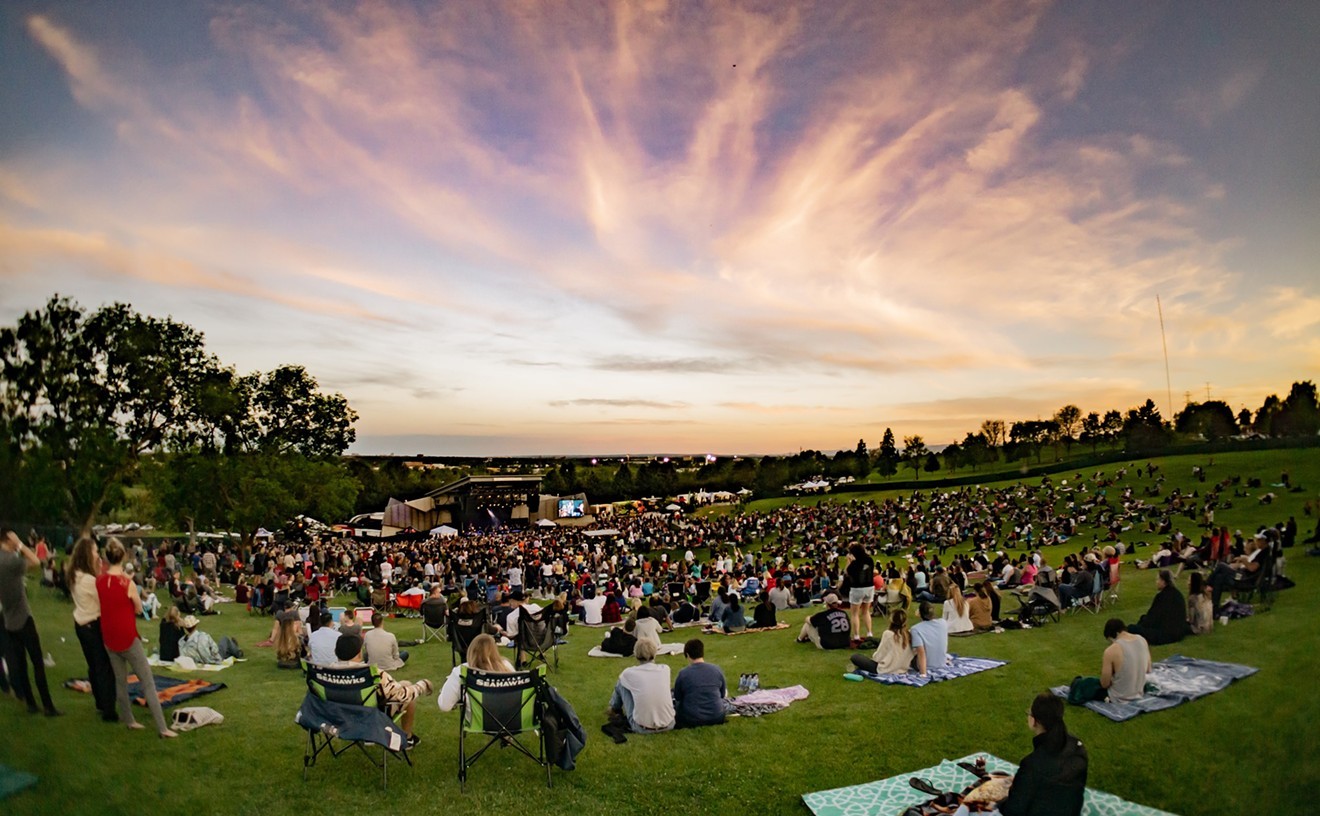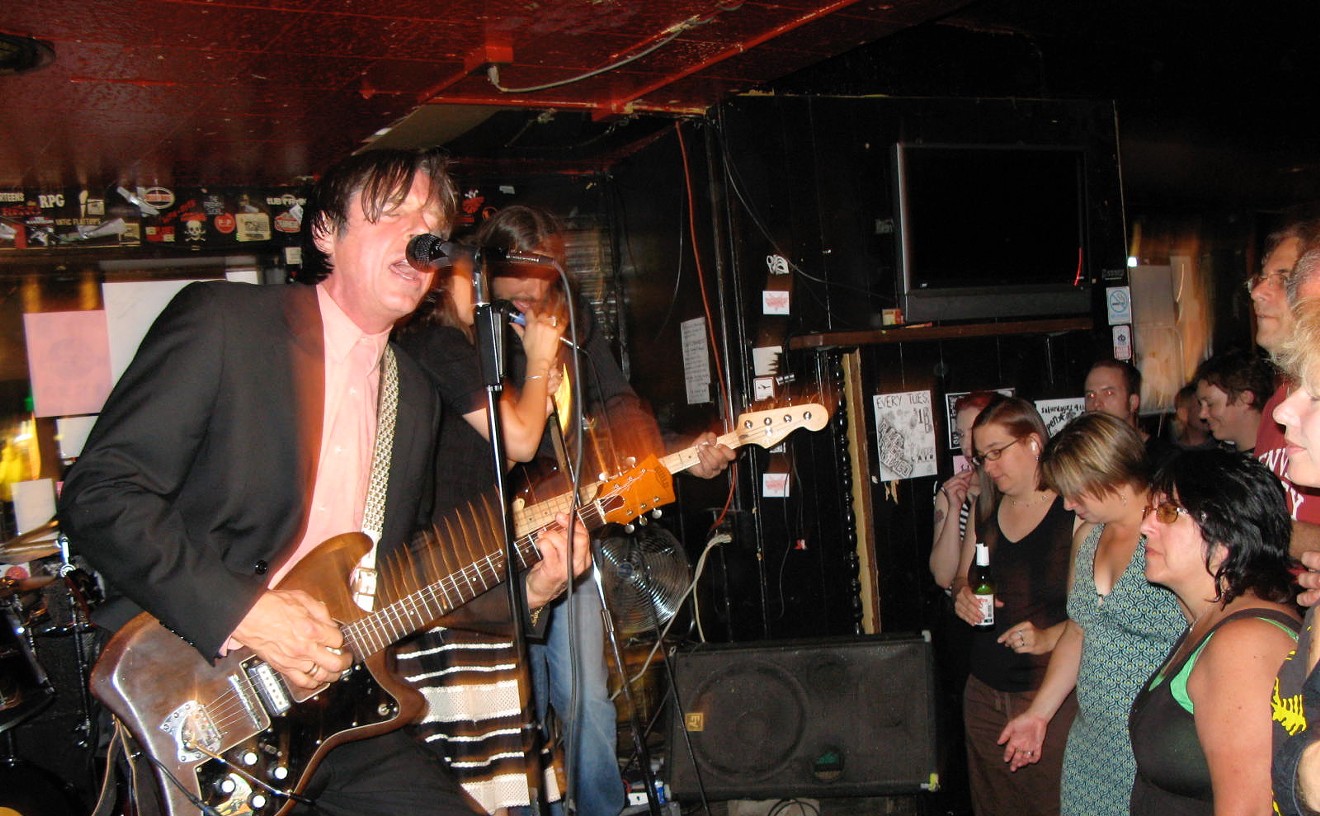See also: 50 Photos That Prove Red Rocks Is the Most Beautiful Venue on the Planet
What is Red Rocks? Let's start with the basics: Red Rocks is the name of an 868-acre park located outside the town of Morrison in Jefferson County. Within the park is an amphitheater that has been hosting concerts regularly since 1941.Who owns Red Rocks? The City of Denver owns the park and the amphitheater within it; Red Rocks is one of 22 properties operated by the Denver Mountain Parks system. The city bought the land in 1928 and built the amphitheater out of an existing rock formation with help from the Civilian Conservation Corps. Most concerts here are produced by private companies, which rent the amphitheater from the city.
When is Red Rocks open? The park is free and open to the public year-round from one hour before sunrise to one hour after sunset. The amphitheater and visitor center, also free, are open from 8 a.m. to 7 p.m. from May to September and 9 a.m. to 4 p.m. from October to May, but they close early on days when there are concerts -- usually a little after noon.
What's the elevation of Red Rocks? 6,450 feet; about 1,200 feet higher than Denver.
Can I do anything besides see concerts at Red Rocks? There is a trail system throughout the park where you can hike or bike, and the amphitheater itself hosts exercise clubs and yoga most mornings. There's also a restaurant called the Ship Rock Grille and a gift shop.
If it is a public park, does that mean my tax dollars go to funding a concert venue? No. The amphitheater is completely funded by revenue that the city earns from rental fees.
What is the capacity of Red Rocks? There are 9,525 seats at Red Rocks. The total capacity of the venue, including the restaurants, backstage areas and visitor center, is a little over 10,000.How much does it cost to rent Red Rocks? That depends on the type of event and the time of year. Red Rocks booking manager Jeannette Murrietta says a typical concert costs "upwards of $100,000," including fees for equipment, security, vendors and the venue itself. The rental fee alone for concerts and other ticketed events is 11 percent of admission revenue or $7,500, whichever is greater. Nonprofits are charged 8 percent of their admission revenue, with a minimum of $5,000. The fee for a private, non-ticketed event (such as a wedding, bar mitzvah or cult ritual) is $100,000 during concert season -- which runs from May to September -- and that price doesn't include the labor and equipment required to host an event at Red Rocks. Nonprofits are charged $10,000. The off-season rental fee for commercial and private entities is also $10,000.
Who can rent Red Rocks? Anyone. If you've got the cash and an idea, you can rent the Rocks.
Okay, but who actually does rent Red Rocks? AEG and LiveNation -- the two largest concert-promotion companies in the country -- mostly split the schedule for the Red Rocks concert season, though other organizations occasionally host events. This month, for example, there are 27 shows at Red Rocks. Eighteen are produced by AEG, eight by LiveNation, and one by Colorado Public Television.
Who is in charge of security at shows? Argus Event Staffing handles in-show security. The Denver Police Department provides law enforcement during events as well as traffic and safety around the venue. Booking organizations must pay for both security and police presence during concerts/events. Outside of show times, the Jefferson County Sheriff's Office is in charge of the park.
Who are the vendors? Aramark Sports & Entertainment is the exclusive distributor of food, drinks and artist merchandise for the venue, though they do work with some Colorado companies to bring in local products. Aramark is also in charge of all clean up after events.
Great! Marijuana is legal now! So I can smoke at Red Rocks concerts, right? No. The sale and use of weed at Red Rocks is still illegal. What's all this about a signature wall inside the venue? It's not a rumor. There is a an entire hallway where musicians can sign as they come through the venue. Check out our post on it from a couple years back for more photos.What was the first concert at Red Rocks? The first concert to ever rock the rocks happened before the Red Rocks you know and love came into being. In 1906, former owner John Brisben Walker hosted Pietro Satriano and his 25-piece brass band to play the venue. Walker hosted music in the unfinished venue (aka nature) until around 1927, when the City of Denver bought the land from him.
What about notable concerts? The most well-known Red Rocks concert is probably the Beatles in 1964. It was the only stop on the tour not to sell out. In 1983, U2 filmed its Red Rocks show for the concert movie, Live at Red Rocks: Under A Blood Red Sky. But there have been hundreds of notable concerts featuring just about every big-name act in pop music history.
Has the park always been called "Red Rocks"? No. When Walker owned it, it was called the Garden of the Titans.
How was the amphitheater built? The City employed workers from the Civilian Conservation Corps. It took 12 years to finish, and it was dedicated on June 15, 1941.
Follow @Westword_Music










